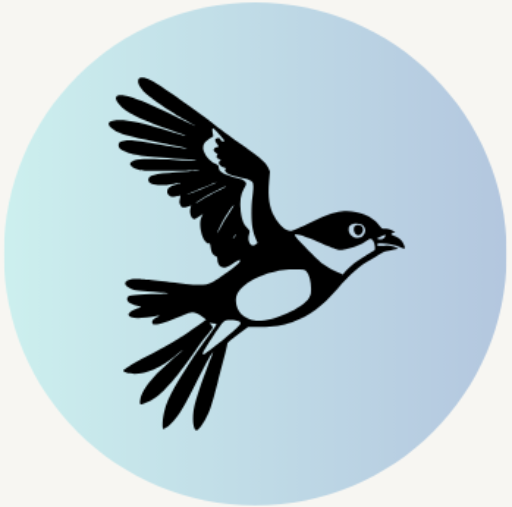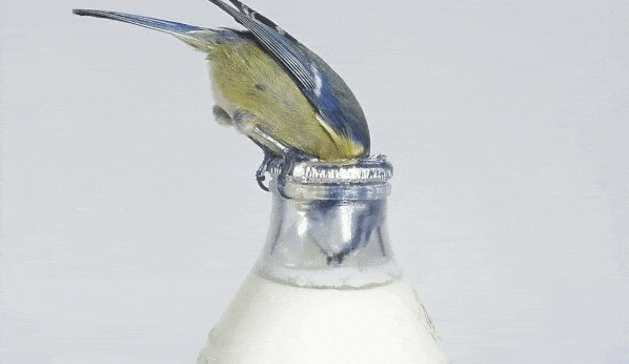
Can Birds Drink Milk? Totally! Birds typically don’t consume milk. While they might be interested, their bodies aren’t intended to process lactose, a sugar tracked down in milk. All things considered, birds get their supplements from seeds, bugs, organic products, and other normal sources. Along these lines, offering them milk isn’t fitting. Stick to water and bird-accommodating food varieties to keep our padded companions sound and blissful!
Importance of understanding bird nutrition
Understanding bird nourishment is pivotal for guaranteeing the health and prosperity of our padded companions. Birds, similar to every single living animal, require a decent eating regimen to flourish. By appreciating the particular wholesome requirements of birds, we can give them the appropriate sustenance they need to have solid existences.
Birds, being different animals with different species and living spaces, have remarkable dietary prerequisites. Whether they are seed-eaters, insectivores, or nectar-feeders, each bird species has advanced to eat explicit food sources that furnish them with fundamental supplements. Hence, understanding what food varieties are reasonable for various bird species empowers us to actually take care of their dietary necessities.
Additionally, understanding bird sustenance assists us with forestalling medical problems and lacks in our avian associates. Similarly, as people can experience the ill effects of hunger or dietary awkward nature, birds are likewise defenseless to medical conditions on the off chance that they don’t get satisfactory nourishment. By furnishing birds with a balanced eating regimen, we can assist them with keeping up with ideal health and imperativeness.
Besides, information on bird nourishment permits us to settle on informed conclusions about what to take care of our avian companions. With such countless choices accessible, from business bird seed blends to custom-made treats, knowing which food sources are healthfully useful guarantees that we are giving the most ideal eating routine to our padded buddies.
Getting a handle on the complexities of bird nourishment is fundamental for the health and joy of our avian companions. By understanding their dietary necessities, we can furnish them with the legitimate sustenance they expect to flourish. Thus, whether it’s picking the right bird seed or offering nutritious treats, how about we guarantee that our birds drink milk and get the nourishment they need to take off high and carry on with their best lives?
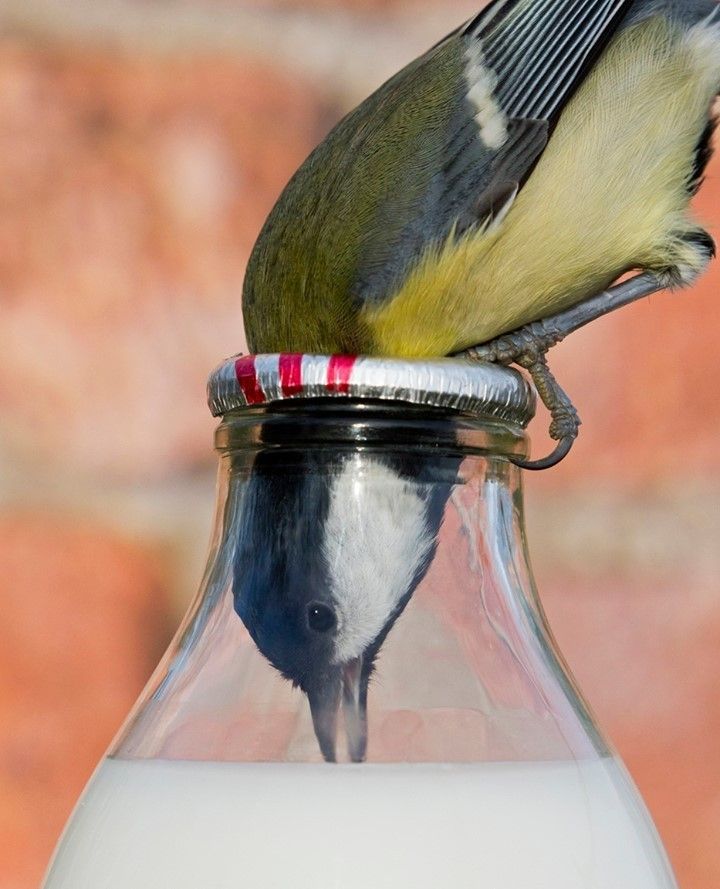
Differences between bird and mammal digestion
Bird and mammal assimilation grandstand striking incongruities attributable to their transformative variations and dietary inclinations. Understanding these qualifications offers knowledge of the remarkable digestive systems of each gathering.
Right off the bat, birds and vertebrates have differentiating digestive life structures. While mammals have complex intestinal systems highlighting stomachs, small digestion tracts, and digestive organs, birds brag less complex frameworks absent all teeth and outfitted with particular organs like the gizzard. These underlying fluctuations mirror their particular care of methodologies and metabolic requests.
In addition, the course of food breakdown contrasts altogether among birds and mammals. Well-evolved creatures use biting and spit to start absorption before food enters the stomach. On the other hand, birds need teeth for biting and depend on their mouths to separate food into reasonable pieces. While vertebrates produce spit-containing chemicals to launch assimilation, birds’ spit principally helps with grease instead of compound action.
One significant uniqueness lies in lactose assimilation. Mammals produce lactase, a compound pivotal for separating lactose tracked down in milk, working with effective milk assimilation. Conversely, birds regularly need lactase, delivering them unfit to successfully process lactose-containing substances like milk. Subsequently, Birds drink milk may be a misinterpretation, as their digestive systems aren’t upgraded for handling dairy.
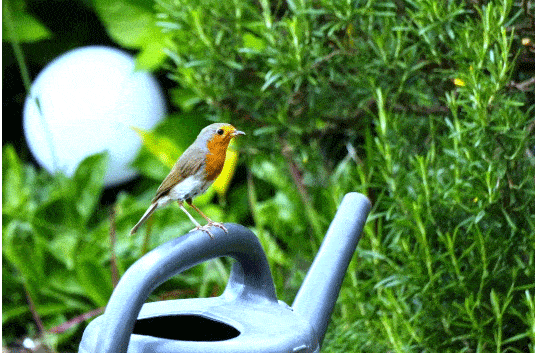
Moreover, the speed of absorption fluctuates extraordinarily among birds and mammals. Mammal creatures for the most part display slower processing rates, taking into consideration exhaustive supplement assimilation. On the other hand, birds have quicker absorption rates to help their high metabolic requirements, empowering quick handling of food to support energy levels for exercises like flight.
Basically, the aberrations in bird and mammal creature assimilation highlight their particular transformative variations and dietary propensities. While vertebrates have perplexing digestive systems fit to biting and handling a large number of food sources, birds have smoothed out frameworks improved for effective energy extraction.
Perceiving these distinctions is critical for grasping the dietary limits of birds, guaranteeing their health and prosperity. In this way, while Birds drink milk might be a typical misguided judgment, appreciating their remarkable digestive physiology is fundamental for their legitimate consideration and sustenance.
Can Birds Drink Milk? The Science Behind Milk Digestion
Understanding the science behind milk assimilation reveals insight into how various species, including birds, process this nutrient-rich substance. While Birds drink milk could appear to be a clear idea, the most common way of processing milk includes a few complex natural instruments.
In mammals, milk absorption starts in the mouth, where chemicals like salivary amylase begin separating sugars present in milk. Once gulped, milk goes down the throat and enters the stomach, where it experiences gastric corrosive and compounds that further separate its parts.
In mammals, the catalyst lactase makes light of an urgent job in breaking lactose, the sugar tracked down in milk, into less difficult sugars like glucose and galactose, which can then be retained in the circulatory system for energy.
Nonetheless, Birds Drink Milk is an alternate story. Not at all like mammals, birds ordinarily come up short on chemical lactase, making it trying for them to really process lactose. Subsequently, offering milk to birds can prompt digestive inconveniences, including bulging, looseness of the bowels, and stomach torment. This powerlessness to process lactose really is a critical contrast in milk absorption among birds and vertebrates and highlights the significance of grasping the dietary constraints of avian species.
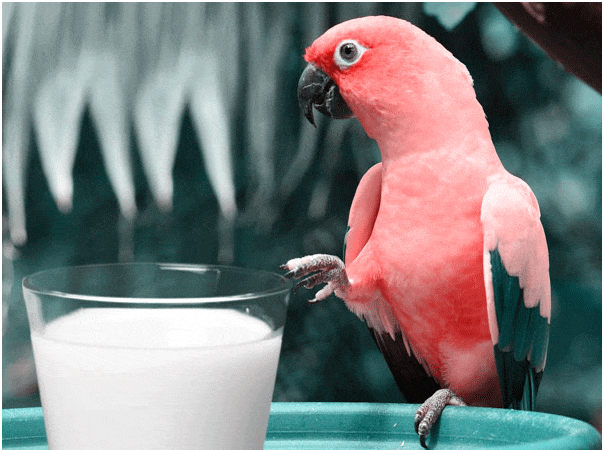
Besides, the digestive systems of birds are adjusted to deal with various sorts of food varieties contrasted with mammals. Birds have more limited intestinal systems and miss the mark on digestive organs like the gallbladder, which influences how they separate and ingest supplements from their food. While Birds drink milk could appear to be an enticing thought, it’s fundamental for bird proprietors to focus on bird-accommodating food varieties and try not to offer dairy items to guarantee the health and prosperity of their avian partners.
Potential Risks of Milk Consumption
While Birds drink milk could appear to be innocuous, there are huge dangers related to offering dairy items to our padded companions. Understanding these potential risks is vital for guaranteeing the health and prosperity of birds in our consideration.
Right off the bat, Birds drink milk can prompt digestive issues. Most birds miss the mark on chemical lactase expected to separate lactose, the sugar tracked down in milk. Subsequently, polishing off milk can cause digestive inconvenience, including swelling, runs, and stomach torment. These side effects can be upsetting for birds and may try and prompt more extreme unexpected issues if milk utilization endures.
Additionally, offering milk to birds can disturb their wholesome equilibrium. While milk contains a few supplements like calcium and protein, it misses the mark on fundamental nutrients and minerals that birds need for ideal health. Assuming birds drink milk consistently, they might foster a lack of fundamental bird nutrition, undermining their general prosperity.
Furthermore, there is a gamble of bacterial tainting related to milk utilization. Milk can hold onto destructive microbes, for example, Salmonella, which can cause difficult diseases in birds. Indeed, even sanitized milk might in any case represent a gamble on the off chance that not dealt with and put away appropriately. Birds are especially susceptible to bacterial diseases, so it’s fundamental to limit their openness to potential impurities like milk.
While the idea of Birds drink milk might appear to be guiltless, it presents huge dangers to their wellbeing. From digestive issues to dietary irregular characteristics and bacterial defilement, offering milk to birds can have unfriendly outcomes.
Rather than milk, it’s fundamental to give birds a reasonable eating routine comprising bird-accommodating food sources and new water to guarantee their prosperity. Thus, while Birds drink milk might be an enticing thought, it’s ideal to try not to offer dairy items to our avian allies to keep them cheerful and solid.
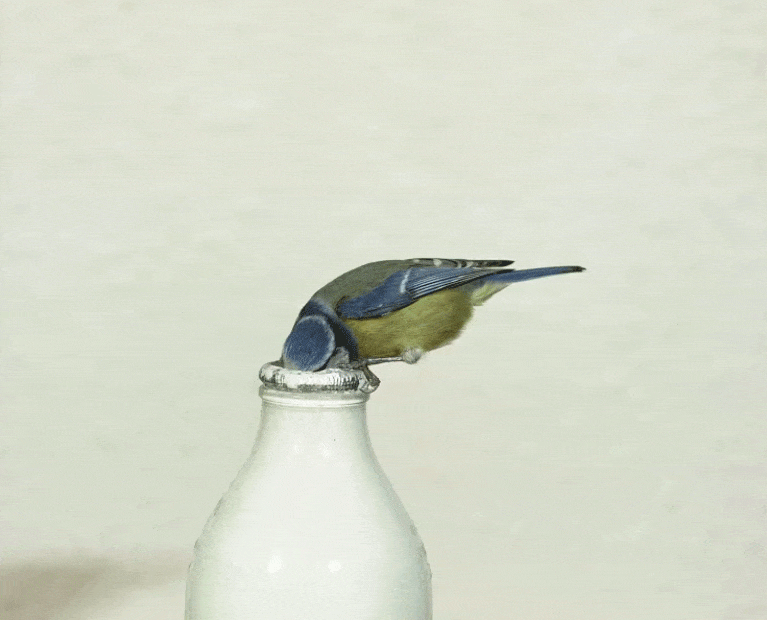
Practical Tips for Bird Owners
For bird owners, giving the best consideration to our feathered friends includes something other than guaranteeing they have a comfortable enclosure and a lot of toys. It’s fundamental to comprehend their dietary requirements and proposition them a nutritious eating routine to help their health and prosperity.
While Birds drink milk could appear to be a charming thought, it’s vital to try not to give dairy items to birds because of the dangers implied. Here are a few reasonable tips for bird proprietors to guarantee the ideal consideration of their avian friends.
Firstly, focus on a fair eating routine for your birds. Offer them an assortment of bird-accommodating food varieties like seeds, natural products, vegetables, and uncommonly planned bird pellets. Try not to give them food sources that are high in sugar, salt, or fat, as these can be unsafe for their health. All things being equal centers around giving a different scope of supplements to meet their wholesome requirements.
Secondly, consistently guarantee that your birds approach new, clean water. Hydration is significant for birds’ general health and helps support their processing and digestion. Routinely change their water and clean their water dishes to forestall bacterial defilement. Keep in mind that birds drink milk is definitely not a reasonable substitution for water and can really be hurtful to their digestive systems.
Additionally, establish a safe and improving climate for your birds to flourish in. Give them a lot of chances for practice and mental excitement, for example, roosts, toys, and intuitive exercises. Guarantee that their enclosure is open enough for them to move around easily and that it is cleaned routinely to keep up with cleanliness.
Ultimately, lay out a normal daily practice for taking care of, cleaning, and collaborating with your birds. Consistency is vital to their prosperity and assists them with having a good sense of reassurance in their current circumstance. Screen their way of behaving and health intently, and talk with a veterinarian if you notice any progressions or concerns.
While Birds drink milk might appear to be an enchanting thought, bird proprietors really must focus on their avian partners’ health and prosperity by offering them a fair eating regimen, new water, an animating climate, and a reliable daily practice. By following these down-to-earth tips, bird proprietors can guarantee that their padded companions have cheerful, sound existences.
Discuss cultural influences on perceptions of bird nutrition
Social impacts fundamentally shape how individuals see bird nourishment, affecting what is considered proper or satisfactory to take care of birds in different social orders. These social convictions and practices fluctuate broadly across districts and networks, affecting individuals’ connections with and care for birds.
In certain societies, Birds drink milk might be viewed as a characteristic and valuable practice. For example, in social orders where dairy items like milk are staple food sources, there might be a conviction that offering milk to birds furnishes them with fundamental supplements. This social point of view might come from a custom of imparting food to creatures as an indication of consideration or friendliness.
Alternately, in societies where dairy utilization is less predominant or where lactose narrow-mindedness is normal, Birds drink milk might be seen with distrust or concern. Individuals in these social orders might know about the potential dangers related to lactose prejudice in birds, like digestive issues or uneasiness. Subsequently, they might be more careful about offering dairy items to birds and may focus on other food sources.
Besides, social mentalities toward explicit food sources can impact the impression of bird nourishment. For instance, in societies where certain food sources are viewed as untouchable or holy, these things might be kept away from while taking care of birds. On the other hand, in societies where certain food sources are bountiful and promptly accessible, they might be all the more usually proposed to birds, no matter what their dietary benefit.
Generally, social effects on the view of bird sustenance feature the variety of mentalities and work on encompassing bird care around the world. Understanding these social points of view is fundamental for advancing mindful bird taking care of practices and guaranteeing the health and prosperity of birds across various social settings.
Thus, while Birds drink milk might be a typical practice in certain societies, taking into account the social impacts that shape our perspectives toward bird nutrition is significant.
FAQs
Can birds drink lactose-free milk?
Birds ought not to be given an economically accessible item produced for lactose-prejudiced people. The two mixtures that lactose is separated into by these items are harmful to birds. Parrots are not 100 percent lactose-bigoted – they can process limited quantities of specific journal items.
Why can’t birds have milk?
Lactose Prejudice
Since it doesn’t have the proteins important to process lactose, milk sugar will frequently go through the bird’s intestinal system unaltered. Since it is an unfamiliar sugar, it will bring liquids into the digestive system, bringing about the looseness of the bowels, specifically whenever ingested in bigger sums.
Can pigeons drink milk?
WARNING: Never give a pigeon dairy milk, they can’t process it. Kindly don’t take care of them worms by the same token! If it’s not too much trouble, verify that the child is warm before taking care of it. On the off chance that it is cold then it will not have the option to process its food and taking care of it could kill it.
Can budgies drink milk?
Dairy items ought to be consumed with some restraint, as birds are lactose-bigoted. Exceptionally pungent food sources (chips, pretzels, popcorn), chocolate, items containing caffeine (espresso, tea, pop), and cocktails ought to never be taken care of by your budgie.
Conclusion
In conclusion, while Birds drink milk might appear to be engaging, perceiving their lactose intolerance is pivotal. Offering milk can cause digestive distress in birds. The digestive systems are improved for seeds, natural products, and bugs. Giving a fair eating routine without dairy items is fundamental for their health. Understanding these limits advances ideal bird care. Focusing on bird-accommodating food sources and new water guarantees their prosperity. Thus, for the best consideration, cease offering milk to birds.
